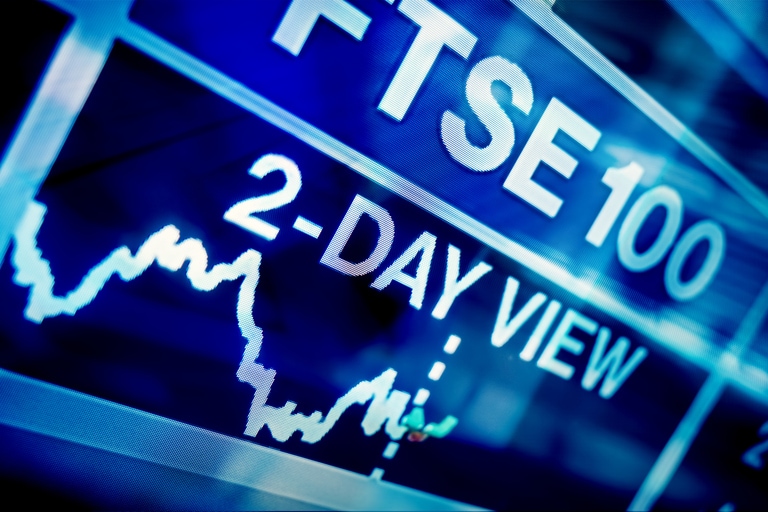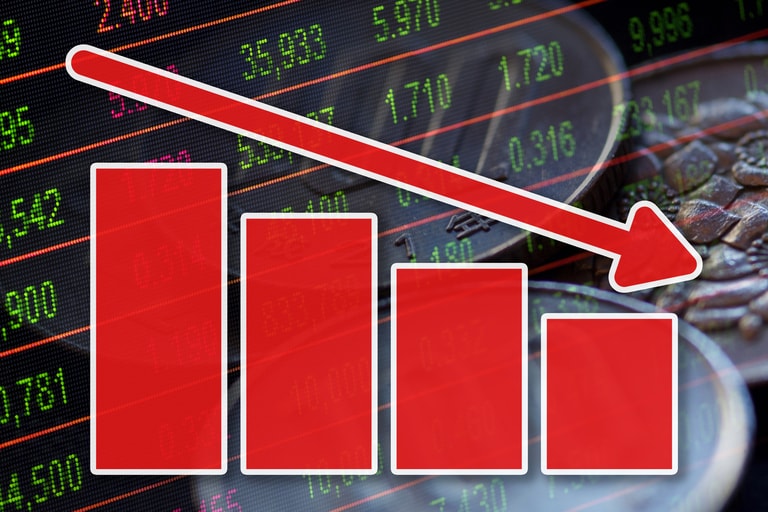Today’s market price action has been curious to say the least with sharp falls in bond yields and stock markets with the Euro Stoxx 50 falling to its lowest levels since 20 May. The FTSE 100 has also fallen sharply, slipping below the 7,000 level.
Europe
The bond market appears to be telling us the reflation trade is dead or dying, with the US 10-year yield falling to its lowest level since mid-February, down over 10bps from last weeks close, while equity markets are also coming under pressure as a consequence of concern over a slowing of the global recovery as infection rates continue to rise.
This is a rather different narrative to the one that was predicting that the reflation trade of rising yields might put downward pressure on some of the more expensive areas of the stock market. This almost appears old news now, as investors find something else to fret about.
The cues from Asia markets weren’t particularly promising with the Nikkei 225 falling after Japan indicated it was set to declare a state of emergency only days ahead of the upcoming Olympic Games. It beggar’s belief that Japan is being allowed to go ahead with the games against a backdrop of rising cases, not only across the country but across Asia as well.
Last night’s Fed minutes didn’t tell us anything that we didn’t already know with respect to the prospects of future monetary policy, while it's no secret that transmission rates of the Delta variant have been rising, and likely to continue to do so.
What’s more surprising is why markets have chosen to react today to the ongoing rise in cases, and concerns that these could impact global growth prospects, thus impacting inflation expectations. From fretting about inflation moving higher too quickly, markets now appear to be fretting about a demand and an inflation slowdown.
Persimmon shares are amongst the largest fallers on the FTSE 100 despite posting better than expected H1 revenue of £1.84bn and 7,406 completions over the reporting period. Average selling price also increased by 4.9% to £236.200, which is helping to mitigate the upward pressure on the cost base. Forward sales were slightly lower at £1.82bn, down from £1.86bn in 2020.
The company also said it was accelerating the return of its pre-covid profile of dividend payments to shareholders by 2022.
Mining stocks are also weaker with Anglo American, Antofagasta and Glencore all lower, largely due to weaker iron ore and commodity prices over concern that China’s economy may be weaker than recent data suggests.
Airlines are performing slightly better after the UK government said that quarantine for fully vaccinated UK residents would be scrapped from 19 July for a number of amber list countries, though they would still have to take a test before and after they arrive home. IAG and easyJet are both making gains in timing that is welcome ahead of the UK summer holiday season.
JET2 on the other hand has fallen sharply after reporting losses of £374m, as passenger numbers plunged 91% to 1.32m.
WISE has continued to move higher after its successful debut yesterday saw the shares open at 800p, moving up to over 900p as investors warmed to a company that is already profitable, and likely to remain so.
Deliveroo shares have continued to make progress in the wake of the disastrous slump from its 390p IPO price at the end of March. Today’s Q2 update has seen the business report an 88% rise in orders while raising its GTV guidance for the full year from 30% to 40% to between 50% and 60%, helping to push the shares to the highest levels since the opening day of trading, and up more than 40% from the April record lows at 225p.
US
US markets have taken their cues from today’s sharp falls in Asia and Europe, opening lower, having hit new record highs only yesterday. The latest set of weekly jobless claims came in slightly ahead of expectations at 373k, although continuing claims fell to 3.33m, a fall from 3.48m the previous week.
New Chinese ride sharing ADR Didi Chuxing has continued to slide, after its launch earlier this week after Beijing announced a crackdown on all US listing of all Chinese firms. The move, announced only two days after Didi launched on the US market, has also hit other US listed Chinese companies including Alibaba, Nio Inc, XPeng Inc, JD.com and Tencent.
With the yield curve also flattening US banks are also under pressure ahead of next week’s Q2 earnings announcements, which are already expected to be below the performance of what was a bumper Q1, and with yields set to decline further Q3 could see further risks to the outlook, with Morgan Stanley leading the way lower.
FX
The euro appears to have shrugged off today’s action by the European Central Bank in adopting a different mandate for meeting its 2% inflation target. Its previous mandate was to keep inflation at or below 2% over the medium term. This morning the bank changed the mandate to a more flexible and dovish inflation target of 2%, while also adopting a 2% asymmetric inflation target over the medium-term. This means it would be prepared to tolerate temporary inflation overshoots to its policy target. This move can probably be described as a change of style over substance given the ECB’s lack of success in meeting its last mandate, which it could be argued was probably an easier mandate to fulfil.
The Swiss franc and Japanese yen have also performed well due to the risk-off nature of today’s price action in equity markets, with the traditional cyclical currencies underperforming with the Australian and Canadian dollar sliding back, on weaker commodity prices.
Gold prices appear to have received a lift from today’s change of emphasis on the part of the European Central Bank, as well as the broadly weaker nature of bond yields across the piste. Not only have US 10-year yields slipped sharply, but so have Bund yields which also pushed close to three-month lows of -0.34%.
The last three days have seen sharp falls in Brent crude prices, from peaks of just over $78 a barrel, on Tuesday, and touching a three-week low today. The tempering of inflation expectations along with concerns about lower demand appear to be taking some of the heat out of the recent rise in prices, despite the lack of OPEC+ consensus on output increases.
Disclaimer: CMC Markets is an execution-only service provider. The material (whether or not it states any opinions) is for general information purposes only, and does not take into account your personal circumstances or objectives. Nothing in this material is (or should be considered to be) financial, investment or other advice on which reliance should be placed. No opinion given in the material constitutes a recommendation by CMC Markets or the author that any particular investment, security, transaction or investment strategy is suitable for any specific person. The material has not been prepared in accordance with legal requirements designed to promote the independence of investment research. Although we are not specifically prevented from dealing before providing this material, we do not seek to take advantage of the material prior to its dissemination.







